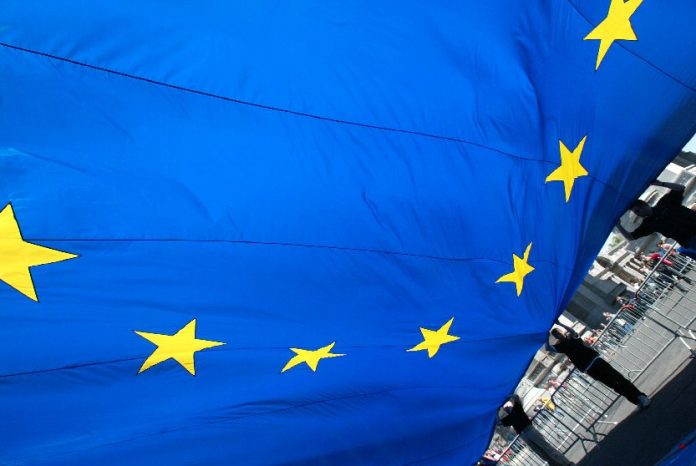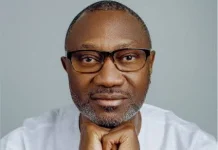The European Union (EU) says it remains Nigeria’s largest trading partner, with a total trade of almost €35 billion in 2023, accounting for about one-third of Nigeria’s foreign investment. Ms. Samuela Isopi, the European Union Ambassador to Nigeria and ECOWAS, made this known on Tuesday in Abuja at the 9th edition of the Nigeria-EU Business Forum 2024.
According to Isopi, the 2024 edition of the forum is the first to be held outside Lagos to highlight the importance of the role of the government in supporting business, the private sector, and private investments as drivers for inclusive and sustainable economic development.
He said, “The EU is by far Nigeria’s largest trading partner, with a total trade of almost €35 billion last year, accounting for about one-third of Nigeria’s foreign trade, and a balance of more than 10 billion euros in favour of Nigeria.
“The European Union is also Nigeria’s biggest foreign investor, with a stock estimated at €26 billion, representing one third of Nigeria’s FDI stock.
“In collaboration with our member states and with EUROCHAM Nigeria, the European Chamber of Commerce, we have carried out the first-ever mapping of EU companies present in Nigeria, and the findings are quite extraordinary.
“More than 230 companies, from 18 EU member states are present in Nigeria, with France, Germany, and the Netherlands making up 60 percent of the companies captured by the survey.”
Isopi also said that in the past, much of this investment used to go into the oil and gas sector, adding that today, the largest sector for EU companies operating in Nigeria was manufacturing, accounting for almost 20 percent of total EU investments in Nigeria.
She said that this was followed by professional services, logistics and construction,while the extractive industries, oil and gas represented less than 10 percent.
Isopi added that the EU companies had a turnover of four billion euros in the last fiscal year due to employment, through the creation of more than 130, 000 jobs and skill development, with 6,000 Nigerians trained annually.
The Ambassador said that the EU and its member states were also top development partner and the European Investment Bank was also increasingly active, with an important ongoing portfolio on innovation, renewable energies, and private sector development, among others.
She said that if Nigeria reconsidered its position on the Economic Partnership Agreement (EPA), it would also open up full and immediate access to the EU market with more than 400 million consumers.
Isopi said the forum would focus on fostering concrete investments in Nigeria, in line with the Renewed Hope Agenda in economic openness and investment, agriculture, digitisation, and health, among others. She commended the Central Bank of Nigeria”s decision to remove foreign exchange restrictions for the import of 43 items.
In the same vein, Ms Myriam Ferran, Deputy Director-General, Directorate for International Partnerships, European Commission, said that the EU resolution was to strengthen ties across the globe, especially this period of global crisis.
“The Global Gateway Initiative is a strategy by the EU to invest in infrastructure projects worldwide; it is the European offer to support sustainable connectivity around the world looking at the best opportunities for further investments.
“Global Gateway is a tool box with a toolkit where you can find what is needed. We work a lot with the government to assist in implementing and improving the business environment,” she said
Similarly, Sen. Abubakar Bagudu, Minister of Budget and Economic Planning, said that the current administration was interested in encouraging investments and willing to do better in international trade.
Bagudu said that the EU concept was a model for the world and it showed that the world could do better when prosperity was shared, and commended the EU for its initiative and support to Nigeria.
“Nigeria has undertaken bold economic reforms most importantly, in order to enable us to combat our reality which includes among others decades of under investment in every area of our national life.
“We are mindful that capital is out there. So what we need to do is to ensure policies that motivate capital funders with confidence to invest in our economy,” he said.
Meanwhile, Dr. Dele Oye, President, Nigerian Chamber of Commerce, Industry, Mines, and Agriculture (NACCIMA), said that the chamber was the biggest in Africa with more than 90 members. Oye said that the chamber should therefore be contacted before any foreign direct investments.
He emphasised the need for the government to always carry the chamber along, especially during international trips, to negotiate better business deals. Oye lamented the departure of some foreign companies from Nigeria and urged those still available to always dialogue with the chamber to seek ways to resolve their challenges rather than exiting the country.













